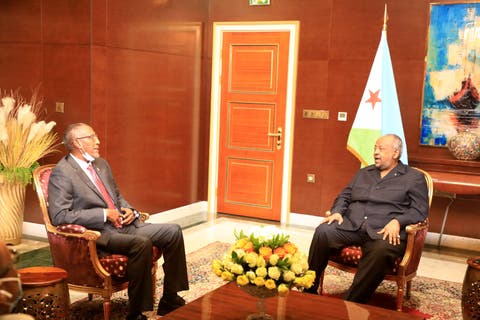Djibouti expresses disappointment over Ethiopia-Somaliland deal

Djibouti expressed surprise and disappointment regarding the memorandum of understanding (MoU) signed between Somaliland and Ethiopia on January 1st. The MoU came shortly after Djibouti hosted negotiations between Somalia’s federal government and Somaliland in its capital.
Ilyas Muse Dawaleh, Djibouti’s Finance Minister, spoke to VOA Somali, stating that the Memorandum of Understanding (MoU) caught them off guard. “We had a clear position,” said Dawaleh. “We encouraged Muse Bihi to remain for further discussions, only to discover he had signed a separate agreement.”
The MoU with Ethiopia came just two days after the conclusion of talks between Somalia and Somaliland in Djibouti on December 29th, 2023. Both parties agreed to resume dialogue to address longstanding political tensions and years of deadlock.
Minister Dawaleh expressed concern that the MoU with Somaliland undermined the sincerity of the negotiations. He highlighted that Somaliland’s signing of the MoU with Ethiopia immediately after talks with Somalia created fresh controversy with the Somali federal government, of which Somaliland is internationally recognized as a part.
However, Dawaleh refuted claims that Djibouti opposed the deal due to potential impacts on its ports. He emphasized the fraternal ties between Djibouti and Somaliland, stating that Djibouti supports Somaliland’s pursuit of its interests and has even lobbied for Somaliland to get humanitarian and development projects. He clarified that Djibouti’s sole objective was to facilitate reconciliation as a neutral mediator.
Isse Keyd Mohamud, Somaliland’s Foreign Minister, also spoke to VOA Somali, denying any deterioration in relations with Djibouti. He defended his country’s actions, stating that discussions with Ethiopia regarding the MoU had been ongoing for over four months, predating the December 29th talks with Somalia. He stressed that the MoU was not a response to the “failed negotiation talks” but rather a long-term plan. He further denied that the agreement constituted a “stab in the back” to the negotiations mediated by Djibouti.
The memorandum with Ethiopia angered Somalia, which termed it a “blatant violation of Somalia’s sovereignty and territorial integrity.”
In response to the MoU and perceived Ethiopian interference, the Somali government expelled Ethiopia’s ambassador and closed Ethiopian consulates in Garowe and Hargeisa.
Analysts questioned why Ethiopia, facing its own civil war and international calls to respect Somalia’s territorial integrity, appears more focused on intervening in regional affairs.








